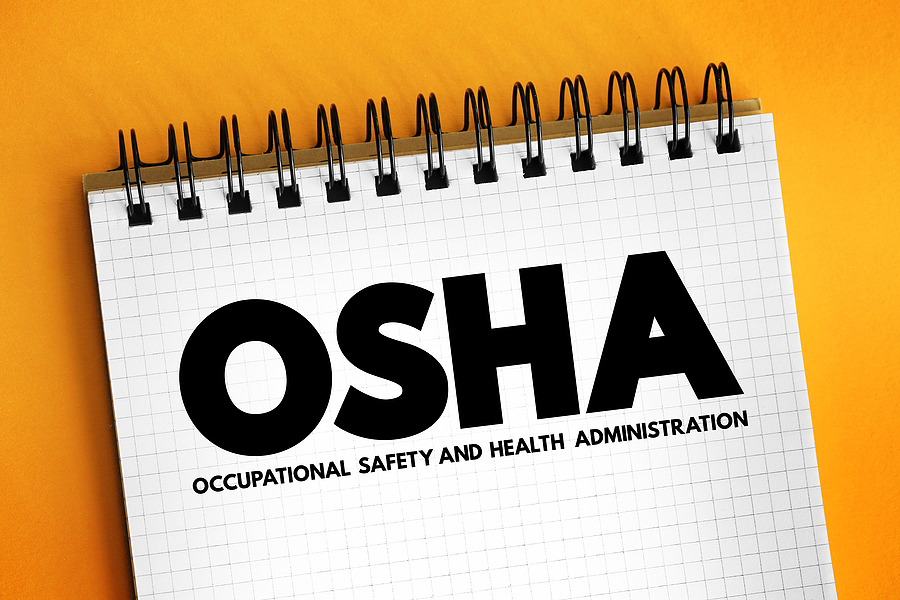OSHA Rules Regarding the Reporting of Fatalities and Severe Injuries

Contrary to what some people believe, OSHA requirements are not just a necessary nuisance, but are designed to keep workers safe. One of the most important requirements is the need to report any serious injuries or fatalities that occur in the workplace.
Some may try to downplay the seriousness of an injury or fatality, but it's important to remember that every death is a tragedy, and every injury has the potential to become fatal.
Employers are required to notify OSHA when an employee experiences a serious injury or fatality. Serious injuries requiring in-patient hospitalization, eye loss, or amputation must be reported within 24 hours, and fatalities must be reported within 8 hours.
How and Where to Make a Report
There are a few ways you can fulfill the obligation to report a serious injury or fatality, including:
- Report to OSHA online
- Call your nearest OSHA office
- Call the 24-hour OSHA hotline at 1-800-321-6742.
No matter which way you choose to report, you will need to provide the following information:
- The name of the business
- The affected employee's name, or names if there is one employee involved
- The time and location of the incident
- A brief description of what happened
- The name and phone number of a contact person.
Who Needs to File a Report?
Any serious injury or fatality must be reported to OSHA, even those employers who may otherwise be exempt from routine record-keeping because of the nature of the industry, or the size of the company.
If the OSHA Area Office is closed, can the incident be reported by faxing the Area Office, sending an email, or leaving a message on the answering machine?
No. A serious injury or fatality must be reported within the mandated timeframe, so you must use the 800 number (1-800-321-6742) to ensure the incident is reported correctly and immediately.
How is 'In-Patient Hospitalization' Defined by OSHA?
If someone is seriously injured at work, OSHA requires that the injury be reported. This includes hospitalization through a formal admission for treatment of the injury. However, emergency room treatment alone does not need to be reported.
How is 'Amputation' Defined by OSHA?
If an employee suffers from a traumatic loss of any limb or other external body part, this is considered an amputation under OSHA regulations. This includes fingertip amputations with or without bone loss; medical amputations resulting from irreparable damage; and amputations of body parts that have since been reattached.
Who Needs to Report an In-Patient Hospitalization or Fatality of a Temporary Worker?
To ensure the safety of all workers, employers are required under section 1904.31 by OSHA to report any serious injuries or fatalities that occur in the workplace. This includes work-related incidents that result in hospitalization, amputation, or loss of an eye.
In the case of a temporary worker, the employer with the responsibility for day-to-day supervision is also responsible for reporting a serious or fatal incident to OSHA.
What Happens if the In-Patient Hospitalization, Loss of an Eye, Amputation or Fatality Occurs After the Incident?
If an in-patient hospitalization, amputation, or loss of an eye occurs within 24 hours of the work-related incident, then you must report the event to OSHA.
Similarly, if a fatality occurs within 30 days of a work-related incident, this too must be reported to OSHA.
When am I Not Required to Report an Incident?
OSHA requires that employers report any serious injuries or fatalities that occur in the workplace. However, there are some exceptions to this rule, such as when the injury or death is a result of:
- a motor vehicle accident on a public street or highway
- an incident that occurs on a commercial or public transportation system
- an incident that involves hospitalization for diagnostic testing or observation only.
What if the State I am in is not Covered by Federal OSHA?
If you are injured or someone dies because of an accident at work, you may be required to report it to your state's occupational safety and health agency. Reporting requirements vary by state, but all states must have reporting requirements that are at least as effective as OSHA's. For further information, visit the Office of State Programs' webpage.
Reporting a serious injury or fatality to OSHA is a vital part of ensuring the safety of all workers. By understanding the reporting requirements, you can help to ensure that every workplace accident is properly documented and investigated.
It's through these documentations and investigations that everyone can learn from their mistakes and put safeguards in place to prevent future accidents. In this way, we can all work together to make the workplace a safer place for everyone.
